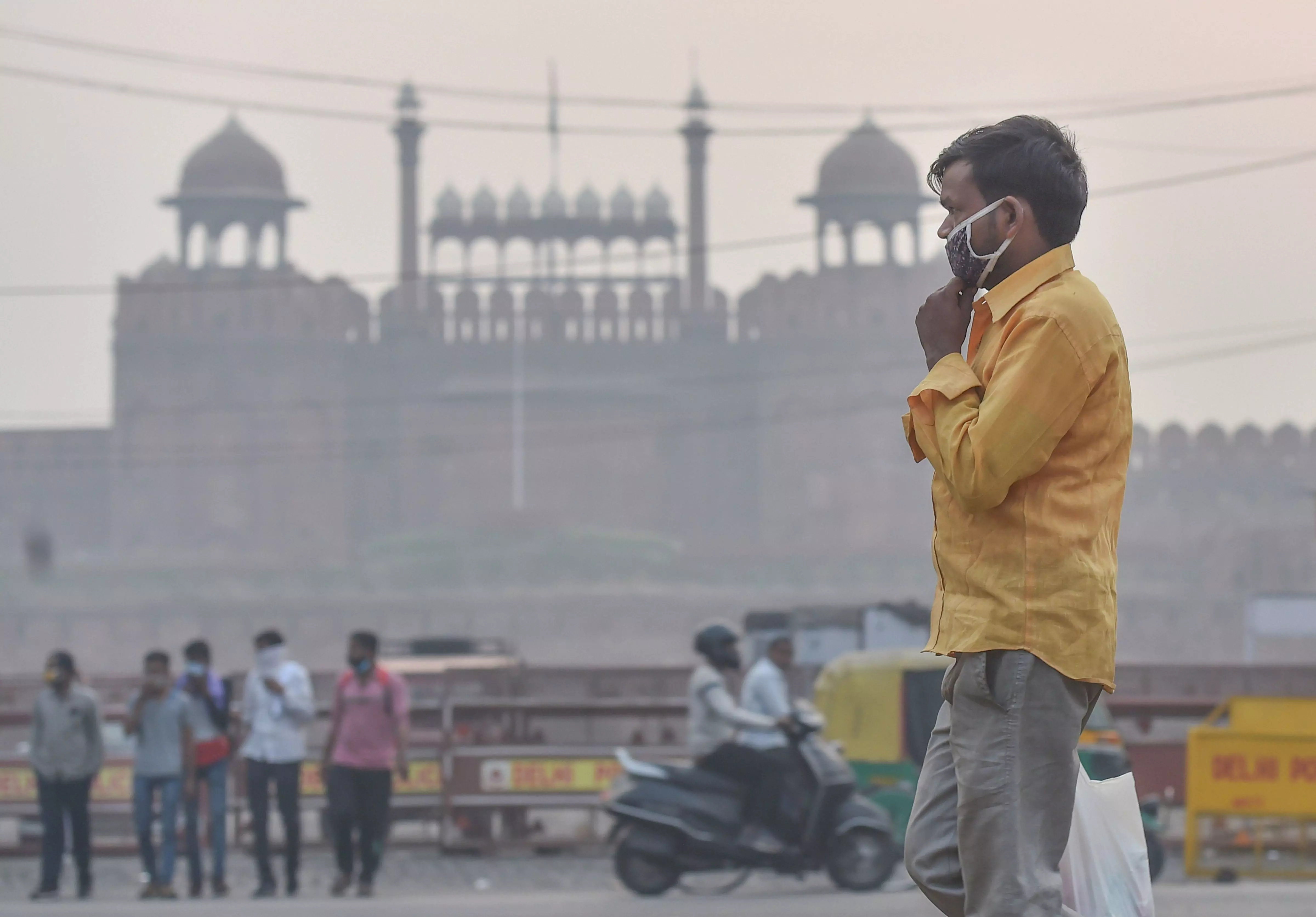
Resurging toxicity : The nationwide clamour surrounding air quality is not without reason
According to forecasts of IMD and IITM, there are indications that the overall air quality in Delhi is poised to deteriorate, likely entering the "very poor" category on October 23 and 24
MP Editorial, 23 Oct 2023 : As winters begin to cast their chilly veil over India, the ominous cloak of air pollution descends upon major cities, notably Mumbai, Delhi, and Noida. The nationwide clamour surrounding air quality is not without reason, as these urban centres find themselves in the news, and unfortunately, for all the wrong reasons.
The Brihanmumbai Municipal Corporation (BMC) has received a wake-up call from the Central government and has shifted into high gear to combat the menace of air pollution in Mumbai's worst-affected regions.
Simultaneously, the principal bench of the National Green Tribunal (NGT) took suo moto cognisance of the escalating air pollution crisis in Delhi. Citing numerous newspaper reports that spotlight the plummeting Air Quality Index (AQI), the Tribunal has prompted authorities in Noida and Ghaziabad to reinforce their actions.
With the winds shifting to a north-westerly direction, a typical pattern that ushers in smog from neighbouring states in Delhi-NCR, the Commission for Air Quality Management (CAQM), a statutory body responsible for the proactive implementation of the Graded Response Action Plan (GRAP), has made an official announcement.
According to forecasts provided by the India Meteorological Department (IMD) and the Indian Institute of Tropical Meteorology (IITM), there are indications that the overall air quality in Delhi is poised to deteriorate, likely entering the "very poor" category on October 23 and 24. Consequently, in response to this worrisome development, CAQM has taken the decision to activate measures outlined in Stage II of GRAP for the entire National Capital Region (NCR), in addition to the actions already initiated under Stage I.
The Graded Response Action Plan (GRAP) is a comprehensive strategy developed by the Indian government to combat air pollution and enhance air quality in regions like the NCR and other highly polluted urban areas. It operates on a tiered system of responses and measures, each corresponding to different levels of air quality as assessed by the Air Quality Index (AQI).
The specific actions under GRAP are activated based on the severity of air quality, ranging from "Moderate" to "Poor," "Very Poor," and "Severe”. The invocation of Stage II of GRAP is indeed a timely response, especially considering the recurring factors that contribute to the annual air pollution crisis.
Factors such as stubble burning, Delhi's characteristic winter meteorological conditions, firecracker emissions, and persistent vehicular pollution are expected to worsen the air quality in the region.
The consequences of air pollution on human health and well-being are insidious and severe. Prolonged exposure to polluted air has been linked to a range of health issues, from respiratory problems to cardiovascular diseases and even premature death. Given these perils, the accelerated efforts undertaken by civic authorities across the country to tackle air pollution are laudable and, one might argue, imperative.
However, it is crucial that these actions are not confined to a reactive approach during the winter months. The authorities should consider formulating sustainable strategies to address this perennial scourge.
Air quality management must be a year-round endeavour, with a focus on reducing emissions from various sources, promoting public awareness, and investing in cleaner technologies and transportation systems. One key area of concern is vehicular emissions, which have long been a major contributor to air pollution.
Encouraging the adoption of electric vehicles, improving public transportation, and implementing stricter emissions standards can all play pivotal roles in curbing this aspect of pollution.
Another significant contributor is industrial emissions. Stringent enforcement of pollution control measures for industries, power plants, and construction sites is crucial. Additionally, encouraging the transition to cleaner energy sources can significantly reduce pollution levels. Addressing crop residue burning, especially in neighbouring states, is vital to controlling air pollution in the NCR.
Sustainable agricultural practices, financial incentives for farmers, and alternative uses for crop residues should be part of the solution.
Furthermore, public awareness and participation are key to achieving lasting change. Citizens must be educated about the health risks associated with air pollution and encouraged to take steps to reduce their own contributions, such as using public transportation, reducing energy consumption, and adopting cleaner habits.
A holistic, year-round approach is necessary to combat this ongoing environmental and public health crisis. It's time for a sustained effort to make clean air a reality for all, not just a seasonal concern.
https://www.millenniumpost.in/editorial/resurging-toxicity-537713


0 Response to "Resurging toxicity : The nationwide clamour surrounding air quality is not without reason"
Post a Comment
Disclaimer Note:
The views expressed in the articles published here are solely those of the author and do not necessarily reflect the official policy, position, or perspective of Kalimpong News or KalimNews. Kalimpong News and KalimNews disclaim all liability for the published or posted articles, news, and information and assume no responsibility for the accuracy or validity of the content.
Kalimpong News is a non-profit online news platform managed by KalimNews and operated under the Kalimpong Press Club.
Comment Policy:
We encourage respectful and constructive discussions. Please ensure decency while commenting and register with your email ID to participate.
Note: only a member of this blog may post a comment.